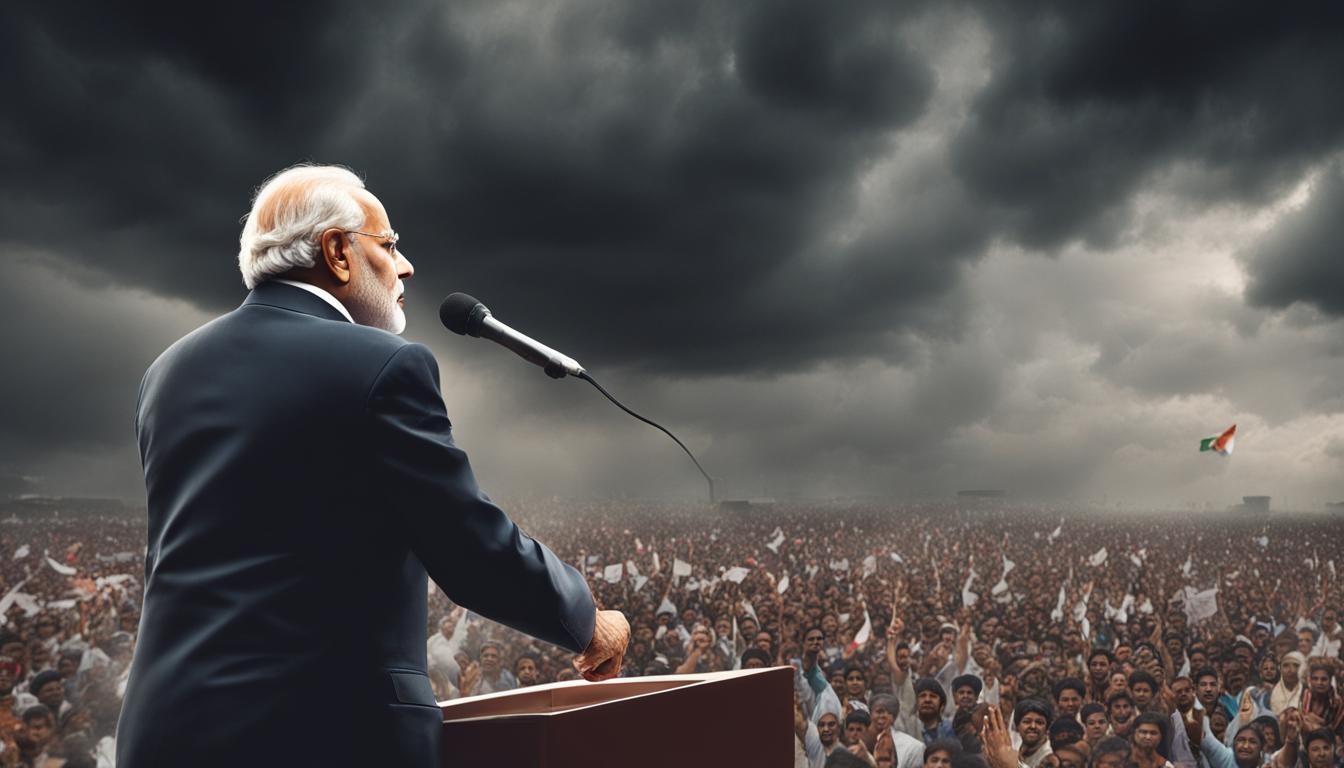Indian Prime Minister Narendra Modi seeks a third term, facing intense scrutiny over alleged divisive campaign tactics and investigations into his speeches as national elections progress.
Prime Minister Narendra Modi of India is currently campaigning for a third consecutive term amidst the country’s national elections. Modi has expressed optimism about his prospects for victory, attributing high public support to his party, the Bharatiya Janata Party (BJP), which he claims represents a pathway to development. He remains confident despite facing significant criticisms and investigations surrounding his campaign tactics.
Critics have accused Modi of employing divisive and inflammatory language during his speeches, particularly those targeting the opposition Congress party and Muslim communities. He has been scrutinized for potentially spreading misinformation and utilizing fear to appeal to fundamentalist Hindu voters. Notably, a speech in Rajasthan has been highlighted where Modi is accused of twisting the words of a predecessor to stoke communal tensions.
The Election Commission is investigating whether Modi’s comments about Muslims constitute hate speech. Further, news website Scroll has analyzed his campaign statements, labelling them as a “catalogue of lies,” with specific reference to false claims about the Congress party’s manifesto.
Despite Modi’s focus on infrastructure developments, his administration has been criticized for issues such as high youth unemployment, persisting poverty, and rising income inequality in India.
The national elections are set to continue unfolding with the results anticipated in June. These elections are marked by increasing controversy over Modi’s rhetoric and accusations from the opposition of potential electoral discrepancies. The investigations and public discourse surrounding these elections are intensifying as the voting progresses.













